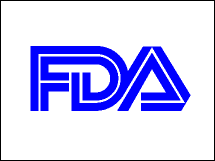
Carbon Monoxide and You
Carbon monoxide is a nasty chemical, as most people already know. When inhaled, it binds to hemoglobin displacing oxygen. And because carbon monoxide binds more strongly to hemoglobin than oxygen, the net result of inhaling too much carbon monoxide is that your blood no longer can carry a sufficient amount of oxygen.
But this is only if you inhale it! If you eat it, nothing happens. Yes, NOTHING! I just looked up in my MSDS (Material Safety Data Sheet), and it said there is no effect if ingested. Wow, this makes ingesting carbon monoxide LESS toxic than eating table salt (which is kind of a reference point for us toxicologists). So should it be of any concern that people are eating this chemical in meats? No, at least not from an exposure point of view. Some say there is the possiblity that people may eat spoiled meat, but I will get to that later.
[By the way, the LD50 of table salt is 1 gram/ kg of body weight. This means that it would be a lethal dose (LD) for 50% of people that ingest this much. So if the average man ate 70 grams of salt all at once, there is a 50% chance he would die right then and there).
GRAS (generally recognized as safe)
GRAS is a concept very common among toxicologists. The idea is that if people have been eating it for decades, with no harmful effects, most likely it is safe. It is kind of a grandfather clause, if you will. There are way too many chemicals in our food for them all to be tested. No, I am not talking about newly invented chemicals, but rather chemicals that are basically extracts from plants like tomatoes and soybeans. To get an idea of other GRAS chemicals check out this FDA site. Which brings me to the FDA.
The U.S. Food and Drug Administration

The good ol' FDA has quite a load on their plate. So do try and give them a break. They regulate foods and drugs, but DON'T do the actually testing of these products. Our government doesn't have the resources to test everything that goes through the FDA. People may feel compelled to complain about this, but if the FDA stopped products until they were tested another group would start complaining that the government wouldn't let them eat what they had a "right" to eat! So they instead rely on the manufacturers to do the testing. Sounds like a huge opportunity to take advantage of the system. Some do, but most don't. The ones I would be most skeptable about would be the dietary supplement companies. They use some pretty sly practices, and can avoid most regulation by the FDA.
And the paperwork! Wow! The FDA has a hard time keeping up with every product. There are some products out there that the FDA has said should be pulled from the market for violations, much of this again in the dietary supplement category (though they can't regulate the product, they can regulate how it is labeled). But the FDA actually is very weak because they are overburdened with the huge work load. So many products continue to be sold against the FDA's finding. BUT when the FDA DOES look into a product/chemical (such as carbon monoxide) and says it is okay, it almost assuredly IS OKAY.

No comments:
Post a Comment